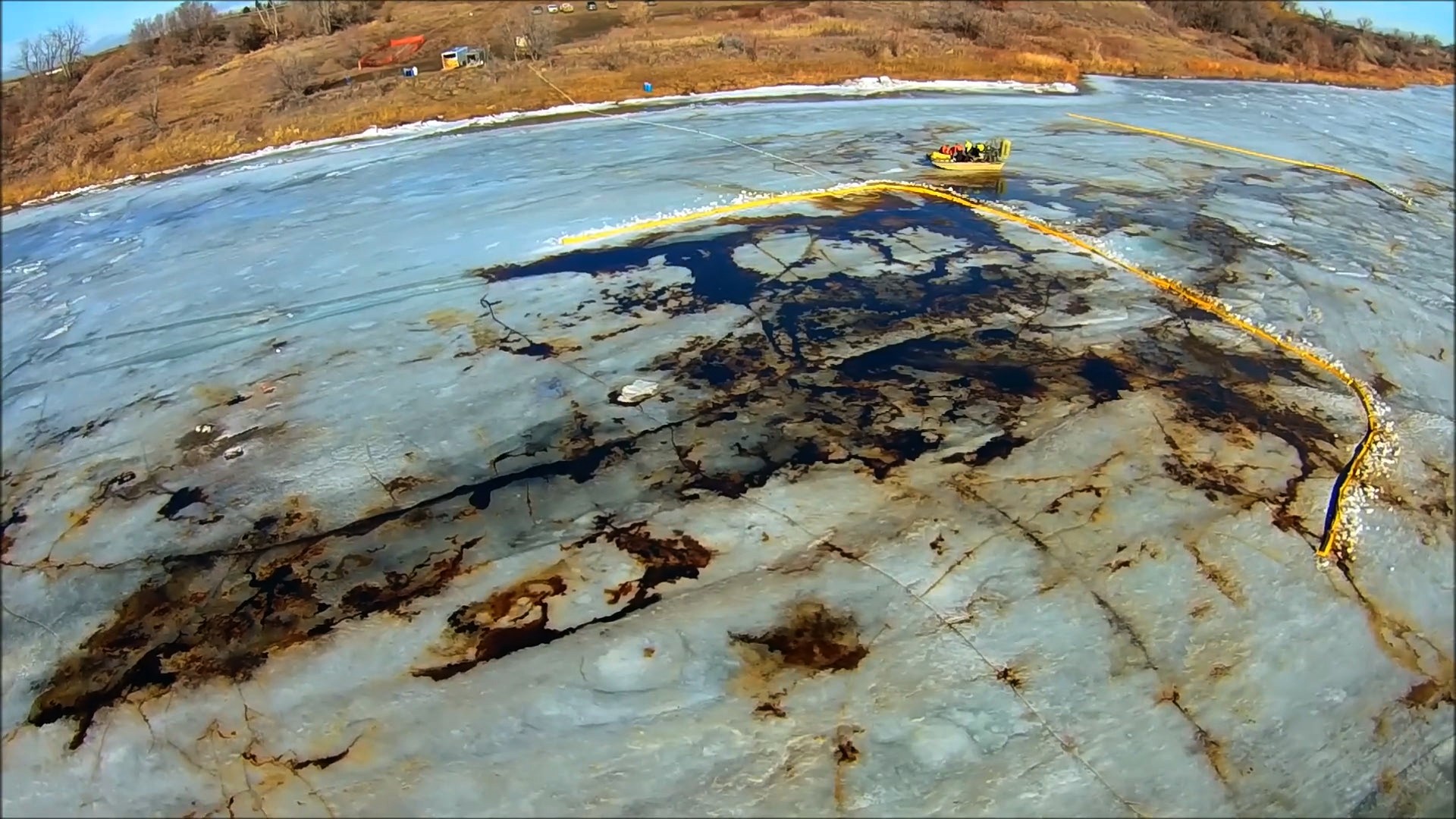With oil now flowing (and leaking) through the Dakota Access Pipeline, Americans across the country are resisting new pipelines in other states, hoping that other regions can avoid similarly dangerous oil infrastructure that threatens local economies and the environment.From Pennsylvania, to Minnesota, to North Carolina, the issues largely remain the same: local citizens and activists are pitted against large multinational corporations and face overwhelming odds to stave off the potentially catastrophic impact that these pipelines may have on freshwater supplies, local wildlife populations, the local economy and job market and Native American lands. Beyond the environmental and public health risks associated with these pipelines, this investment in fossil fuel infrastructure is also hugely detrimental for climate change and hinders job growth associated with renewable energy. These major pipelines are moving America—and the world at large—away from a clean energy future, and justified by short-term corporate profits.
Advertisement
But the country’s energy future is far from a lost cause. Regular people around the United States are battling energy companies, and the regressive pipelines that are threatening a decent quality of life. VICE Impact has assembled a quick list of some of the most crucial pipeline fights for 2018, and how you can get involved.Despite it’s deceptively idyllic name, the Atlantic Sunrise Pipeline will be anything but sunny for the majority of the people in the region.The pipeline, which received approval in February 2017 from the Federal Energy Regulatory Commission (FERC), would cut across ten Pennsylvania counties to bring fracked gas to Cove Point facility in Maryland, where it will be exported. Construction on the $3 billion dollar pipeline began this fall, and operating company Williams Partners hopes to have the line in-service by mid-2018.
Check out more videos from VICE:
Environmentalists, activists, landowners, and Native American tribes have all protested the building of the Atlantic Sunrise since the project was first announced. Pushback has been significant for the pipeline, which endangers over 2,000 acres of forest, wetlands and waterways that are all essential to life in Pennsylvania. Protests have taken many forms over the past four years, including a building site encampment that began in 2015, and a last-ditch effort in December 2017 to get FERC to reconsider their approval of the controversial line. The FERC did not reverse its decision, unfortunately, which means the fight to stop the Atlantic Sunrise Pipeline continues.
Atlantic Sunrise Pipeline - Pennsylvania
Check out more videos from VICE:

Environmentalists, activists, landowners, and Native American tribes have all protested the building of the Atlantic Sunrise since the project was first announced. Pushback has been significant for the pipeline, which endangers over 2,000 acres of forest, wetlands and waterways that are all essential to life in Pennsylvania. Protests have taken many forms over the past four years, including a building site encampment that began in 2015, and a last-ditch effort in December 2017 to get FERC to reconsider their approval of the controversial line. The FERC did not reverse its decision, unfortunately, which means the fight to stop the Atlantic Sunrise Pipeline continues.
Advertisement
For more information about the pipeline, and what you can do to help, head to The Sierra Club’s Pennsylvania chapter to take action.In November 2017, Northern Minnesota saw the formation of protest camps similar to those in Standing Rock. Concerned activists, environmentalists and Native American populations took to the building site of Enbridge Energy’s Line 3 pipeline, to protest the development of the controversial infrastructure. Critics worry that the $7.5 billion dollar pipeline would speed climate change, and put the region at risk for oil spills that would ravage water bodies, wetlands and sacred Native American lands.The inter-state pipeline has already been approved by local governments in Canada, Wisconsin and North Dakota, but Enbridge still needs approval from the state of Minnesota to build Line 3 on its proposed path. This is why protesters have concentrated their efforts in the state, and have thus far made promising progress in blocking the development of the pipeline.In December 2017, after state regulators rejected Enbridge’s proposed environmental impact statement as “inadequate,” Judge Ann O’Reilly issued a ruling that delayed the approval of the pipeline until a comprehensive review was conducted. Activists cheered the decision, while Enbridge expressed frustration at another setback that would continue to delay their project. Enbridge now says the start date for their line is uncertain, and that construction could be delayed as far as November of 2019.
Enbridge Line 3 - Minnesota
Advertisement
This is all good news for opponents of Line 3, who will continue to ramp up their resistance efforts. To join in the protest, head to The Sierra Club’s North Star Chapter, which has been leading the fight against Line 3.The new year brought new headaches for anti-pipeline activists in North Carolina. ‘On January 26, 2018, state regulators issued a key permit for the Atlantic Pipeline, ending the year and a half fight to prevent Duke Energy from building its pipeline in the state. The Department of Environmental Quality (DEQ) issued its approval after an 8 month review of Duke Energy’s proposal, but the decision disappointed the pipeline’s many vocal opponents. The DEQ’s resolution allows the pipeline to cut through vital wetlands, marshes, rivers, and other water sources, and places large segments of North Carolina’s landscape at risk for oil spills.But just because pipeline construction is expected to commence in the spring of this year, doesn’t mean that the fight is over. There are four lawsuits currently pending against the pipeline, filed by a coalition of dozens of environmental groups. The Sierra Club is one of the organizations leading the charge, which includes a lawsuit against the National Park Institute for letting Duke Energy build a section of the pipeline under Blue Ridge Parkway in Virginia.Activists and everyday citizens in Louisiana recently gained a bit of hope in their fight against the Bayou Bridge Pipeline—a proposed 162-mile crude oil pipeline posing potential health and environmental threats to location populations.In January of this year, environmental groups including the Sierra Club, Waterkeeper Alliance, Atchafalaya Basinkeeper, Gulf Restoration Civil Action Network, and the Louisiana Crawfish Producers Association sued the U.S. Army Corps of Engineers to block a permit the Corps issued that allowed construction of the pipeline in the environmentally valuable Atchafalaya Basin. The suit argued that the Corps failed to properly assess the economic and environmental damage the pipeline could bring to the area, and that construction should be halted.In late February, U.S. District Judge Shelly Dick ruled in favor of the environmental groups, issuing a 60-page ruling that demanded work stop in the Atchafalaya Basin. Dick stated that the Corps had neglected to created a full picture of the “permanent harm” that the pipeline could pose to the environment. The order only blocks construction in the Atchafalaya Basin, meaning work continues on other remaining sections of the pipeline, but environmental groups see this as an important step in the ongoing fight against this line.For more information about how to get involved in the resistance effort, head to the Sierra Club’s page on The Atlantic Coast Pipeline.This is only a partial list of the many pipelines and oil drilling projects that are threatening public health, destroying our environment and contributing to climate change. To stay informed about the battle against fossil fuel infrastructure in your state, head to the Sierra Club for more information .
